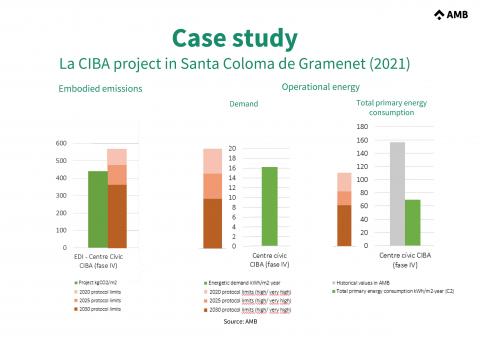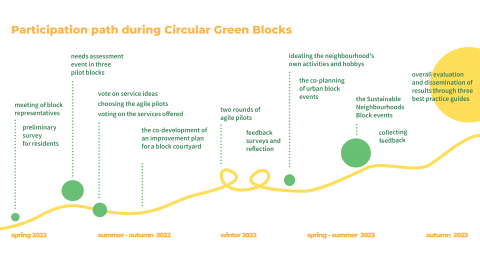Barroso is a mountainous territory with great natural, cultural and human values that are increasingly unprotected. For many years, the wool cycle was an agricultural practice that united communities and allowed a sustainable circular economy. Wool and burel, once so useful and necessary, fell into disuse. This project made it possible to restore practices and knowledge related to artesanal wool production processes, value local communities and enhance the identity of the territory.
All applications
Filter by
Applications (525)
Showing results 31 to 40

Unearth the answers behind well kept secrets and embark on the unique adventure of Crime and Nourishment, a captivating sensory experience where taste, history, heritage, architecture and mystery intertwine. Investigate hidden flavors and forgotten practices in a one of a kind murder mystery case. Can you find the culprit?

The project include:modernization of residential buindings precinct,rehabilitation of sidewalks (52.388 m2) and roadways restoration,construction of rainwater channels,green spaces upgrade, arrangement with pavements, modern lighting systems and video surveillance,4.7 km of bicycle paths and 7 bicycle rental stations in central area of town. Results: -reducing CO2 emissions by 8%; -annual increase of passengers transported within public transport system by 8,7%; -11,000 m2 of planted trees.

The Sustainability Protocol aims to promote sustainable public procurement practices in building and public space design by defining environmental criteria guidelines that go beyond current regulations with which works must comply. This cross-cutting holistic tool sets specific objectives and values to be achieved through design optimisation strategies. In this way, criteria concerning the decarbonisation and regeneration of cities are mainstreamed from the earliest stages of project planning.

BUNHO - AISES purpose is to promote the artisanal production of bunho with the aim of revitalising the art in contemporary market standards, including a training component based on the principles of innovation and design thinking methodologies, providing human capital training geared towards entrepreneurship based on the multidisciplinary study of the art and the bunho artisan community in Santarém, which constitute the benchmark for a Sustainable Development model based on Ecosystem Services.
La Ciba, a space for women's resources, innovation and the feminist economy, emerged as a result of the refurbishment of the old Ciba factory, and has become a pioneering facility in equality policies. The refurbishment is based on interventions for improvement that are sustainable and sensitive to users' needs. The programme includes training classrooms, a fab lab, a co-working area, spaces providing resources for women, a documentation centre and a a new model of emergency shelter.

The change begins in the urban block communities! Turning sustainability transition into an everyday action calls for co-design between residents, businesses and public authorities. Circular Green Blocks focused on tailoring sharing economy solutions for urban blocks, a novel field prominent for new business opportunities. Developing a sharing economy intertwines with community-building and fostering a sense of belonging in the neighbourhoods as it builds on trust and sharing with the community.

The technology developed by Regenstech allows us to accelerate the sustainable transition of the fashion sector through the use of an innovative system for the transformation of industrial and civil waste, giving life to a new secondary raw material, with multiple potential applications.

Veldhuis is a contextually relevant modern home with traditional references. The design is based on an archetypal Dutch barn house, of which the height and width is lessened at the rear. Built from cross laminated timber the main structure was erected in just twelve days and is clad in the world’s first biobased buildup of wood fibre insulation and thatch. Quality building materials were carefully sourced from as nearby as possible: a case study in testing sustainable building practices.

SARA Kulturhus is a house of culture for the people that live in Skellefteå and in the region, all those that will come to live here in the future and for all who need a room to meet and discuss innovative ideas for the benefit and the development of the region. SARA connects historical local traditions of wood-building and cultural expressions to the modern society and is a symbol for inclusion, environmental and social sustainability.
